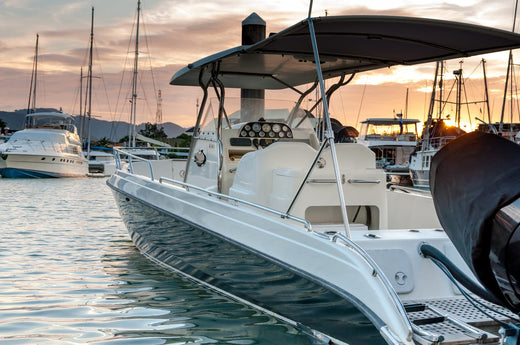
Best Practices to Avoid Overloading Your Boat
Nicholas HeislerShare this article
Heading out for a day on the water is a thrilling experience, but safety should always be the top priority. One critical aspect of safe boating is managing the vessel's weight capacity to prevent overloading. Overloading a boat can lead to instability, compromising the safety of everyone on board. In this guide, we'll explore the best practices to avoid overloading your boat and enjoy a safe and enjoyable voyage on the water.
What is the Best Way to Avoid Overloading Your Boat?
The best way to avoid overloading your boat is to keep the weight of all cargo, people, and fuel under the vessel's maximum capacity. You'll also want to distribute the weight of cargo evenly to maximize stability. Check out these seven tips for ensuring your boat is not overloaded:
1. Understanding Weight Capacity
Every boat is designed with a specific weight capacity, which includes the combined weight of passengers, cargo, fuel, and any additional equipment. Exceeding this weight limit can cause the boat to sit lower in the water, reducing freeboard, stability, and maneuverability.
2. Knowing Your Boat's Specifications
Before setting out on the water, familiarize yourself with your boat's specifications, including its maximum weight capacity, maximum horsepower, and passenger limits. This information is typically provided by the manufacturer and can usually be found in the owner's manual or on a placard affixed to the vessel.
3. Calculating the Total Weight
Take into account the weight of all passengers, including their gear, as well as any additional cargo or equipment being carried on board. Factor in the weight of fuel and any other fluids to ensure an accurate assessment of the total load.
4. Distributing Weight Evenly
Proper weight distribution is essential for maintaining stability and balance on the water. Distribute passengers and cargo evenly throughout the boat, avoiding concentrations of weight in one area. Utilize storage compartments and secure heavy items low and centered to minimize the impact on the boat's stability.
5. Considering Sea and Weather Conditions
Be mindful of the sea and weather conditions when determining the appropriate load for your boat. Rough seas or adverse weather can amplify the effects of overloading, making it even more crucial to adhere to weight limits and maintain proper balance.
6. Prioritizing Safety
While it may be tempting to maximize the number of passengers or cargo on board, prioritize safety above all else. Always err on the side of caution and avoid exceeding your boat's weight capacity, even if it means making multiple trips or leaving some items behind.
7. Performing Regular Maintenance
Regular maintenance is key to ensuring that your boat remains in optimal condition and capable of safely carrying its designated load. Inspect the hull, engine, and other critical components regularly to identify any signs of wear or damage that could compromise the vessel's integrity.
Conclusion
Overloading a boat poses significant risks to both passengers and the vessel itself. By understanding your boat's weight capacity, distributing weight evenly, and prioritizing safety at all times, you can avoid the dangers associated with overloading and enjoy a safe and memorable boating experience. Always remember that safety on the water begins with responsible boating practices.
When it comes to keeping your boat clean, look to Captains Preferred Products boat cleaning supplies. Find everything you need to keep your vessel squeaky clean all season - always at the best prices.









